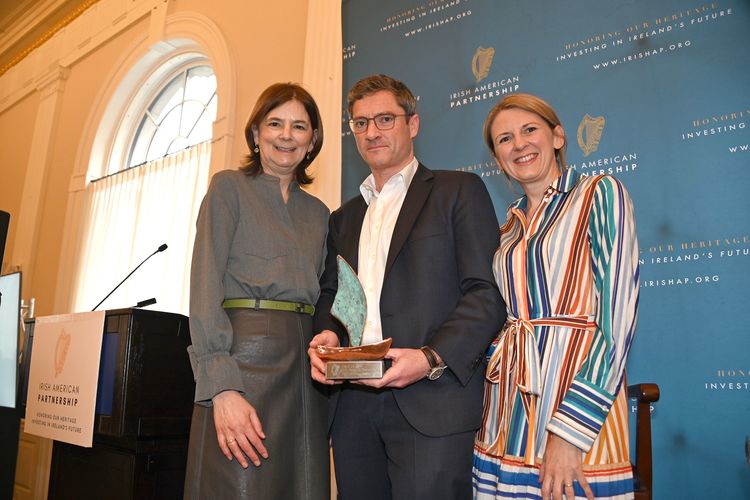[caption id="attachment_70750" align="aligncenter" width="600" caption="Cassidy Regan joins farm workers and their supporters during a "Fast for Fair Food" protest outside Publix supermarket. "]
Lakeland, Fla. --- A wheelchair-bound Ethel Kennedy was among hundreds of protesters who joined fasting tomato pickers in Florida recently as they asked one of the nation's largest supermarket chains for a one cent increase in wages per pound of tomatoes picked.
And protestors have employed a weapon all too familiar to the Irish: a hunger strike, in this case a fast lasting six days.
"People want fairness and social justice," Kennedy told reporters outside the headquarters of Publix Supermarkets in Lakeland, Florida where 60 farm workers from the Coalition of Immokalee Workers (CIW) staged the hunger strike.
The CIW is asking Publix to sign up to a Fair Food Agreement where supermarkets pay an extra penny per pound for tomatoes. The extra penny goes directly to improve wages and working condition for farm workers.
The widow of Robert F. Kennedy was joined by two of her children, Kerry Kennedy and Robert F. Kennedy Jr., at the rally.
Also on hand for the rally was Cassidy Regan, who took time off from her job in Washington D.C. to help organize the protest.
"The Irish faced a long history of exclusion and discrimination in the U.S.," said Regan.
"My own grandfather was a proud member of the carpenters' union for decades. I know he'd have shaken his head at the thought of those denied these rights today."
The CIW has already won over two national grocery chains, Whole Foods and Trader Joes, to their cause. But Publix - a $25-billion, Florida-based company with more than 1,000 stores in the Southeast - still has not signed up, Regan said.
If the farm workers can win over Publix, other major national grocery chains will follow, said Regan, 24, whose family emigrated from Mayo and Fermanagh in the 1950s.
Publix, so far, is unmoved by the protest.
"We view this as a labor dispute," said Publix spokeswoman Shannon Patten. "The CIW is seeking to negotiate wages and working conditions of employment with the growers and the CIW is trying to drag Publix into these negotiations.
Patten said the company is happy to pay the extra penny but "all we are saying put it in the price. We can't pay the extra penny to farm workers because they are not our employees."
A specious argument, counters the CIW. The penny will be in the price if Publix joins the program, they say.
Protests linked to dispute have continued, the latest being last Sunday, the Miami Herald
reported.










